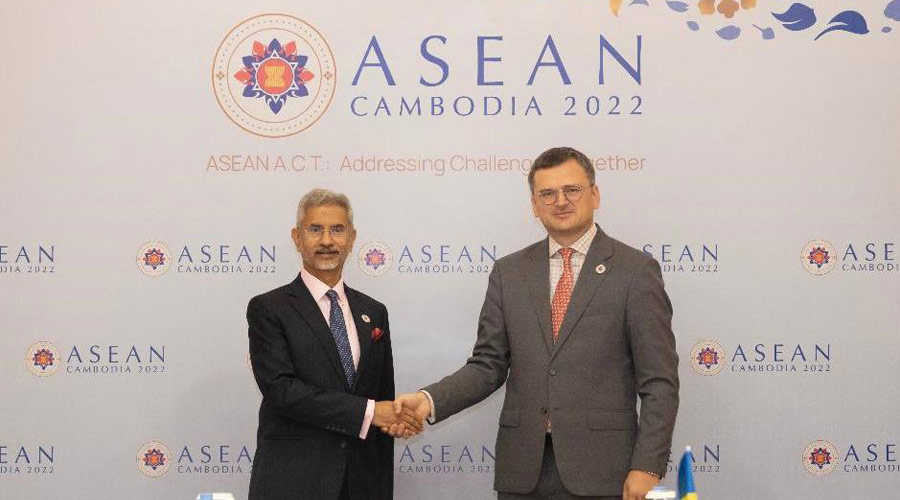I ndia’s tightrope walk on Ukraine was expected to be fraught. And it is turning out to be exactly that. Narendra Modi saying that this is not an era of war had been interpreted by elements in the international fraternity as well as in India as an unambiguous disapproval of Russia’s aggression. But Ukraine continues to maintain that New Delhi has been high on rhetoric and quite low on meaningful action on the matter. That seemed to be the gist of the message of Dmytro Kuleba, the Ukrainian foreign minister, who has now accused India of ‘profiting’ from the suffering of Ukraine and suggested that New Delhi should do more in terms of assisting Kyiv. Significantly, Mr Kuleba’s statement came after India’s external affairs minister, S. Jaishankar, defended New Delhi’s decision to buy Russian oil at discounted prices: the European Union, Mr Jaishankar reasoned, was buying much more in spite of its fierce opposition to Moscow.
There is reason for Kyiv to be feel aggrieved at New Delhi. India has repeatedly abstained during votes in the United Nations that have been censorious of Russia. New Delhi even abstained from a vote in the UN Security Council condemning Russia’s annexation of four Ukrainian provinces in sham referenda only weeks after the Indian prime minister’s seeming reproachment of the Russian president. But India’s strategy has been shaped by realpolitik: New Delhi’s reliance on Russia for energy and military aid cannot be jettisoned on account of moral compulsions. Indeed, strategic interests lie at the heart of the response of nations to tricky situations. Be it the United States of America’s withdrawal from Afghanistan or the muted response of the world — and that of India — to the trampling of democracy in Myanmar, domestic interests and cold-hearted diplomacy are usually prioritised over moral imperatives by modern republics when it comes to Statecraft. So India choosing Russia over Ukraine — as Ukraine has alleged — is not surprising. But New Delhi must also be mindful of the slippery nature of diplomacy in the post-globalised world. Situations and, concomitantly, dependence can change radically with the ebb and flow of events. It would, therefore, make sense for New Delhi to address Ukraine’s concerns to the best of its ability without jeopardising its relationship with Moscow. This would be a test for Indian diplomacy. But then, diplomacy is also, at times, the art of achieving the impossible.










